The automotive market is buzzing with excitement as two popular SUVs, the BMW X1 and the Peugeot 2008, go head-to-head in a battle of innovation, performance, and practicality. Both vehicles bring unique features to the table, making the choice for consumers more challenging. In this article, we will break down the technical aspects and innovations of each model to help you decide which SUV suits your lifestyle best.
BMW X1 vs Peugeot 2008 – Which car suits you better?
Both models have their strengths – but which one suits you more?
Compare performance, efficiency, price and space directly: BMW X1 or Peugeot 2008?
Design and Dimensions
The BMW X1 stands at a length of 4500 mm and a width of 1845 mm, giving it a robust and commanding presence on the road. With a height range from 1622 mm to 1642 mm, it offers a spacious cabin and a comfortable ride. In contrast, the Peugeot 2008 is slightly more compact, measuring 4304 mm in length and 1770 mm in width, with a height of 1523 mm. This makes the 2008 an ideal choice for city dwellers looking for agility in tight spaces.
Engine Options and Performance
The BMW X1 boasts a diverse engine lineup, including Diesel, Petrol, Diesel MHEV, Petrol MHEV, and Plug-In Hybrid options. Power outputs range from 136 HP to a powerful 326 HP, allowing for a thrilling driving experience. The X1 accelerates from 0-100 km/h in as little as 5.4 seconds in its most powerful variant, showcasing its performance capabilities. It also offers a maximum speed of 250 km/h, ensuring exciting highway performance.
On the other side, the Peugeot 2008 features Petrol and Electric powertrains with outputs of up to 156 HP. Its acceleration performance peaks at an impressive 8.3 seconds for the most powerful gasoline variant. The electric version stands out, providing an electric range of up to 406 km, making it a more eco-friendly option for urban commutes.
Fuel Efficiency and Emissions
When comparing fuel efficiency, the BMW X1 offers a decent range with consumption figures as low as 4.6 L/100 km for diesel variants. However, its Plug-In Hybrid variant boasts an astonishing consumption of just 0.8 L/100 km and an electric-only range of 83 km. CO2 emissions vary, with some models falling into the 'D' efficiency class, while others reach the 'B' category.
The Peugeot 2008, meanwhile, places significant emphasis on eco-friendliness with its efficient Electric variant emitting 0 g/km of CO2. For its conventional engines, the gasoline options are rated at a maximum of 6.5 L/100 km, giving it a competitive edge in the SUV segment.
Interior Comfort and Technology
Internally, the BMW X1 is designed for comfort, boasting a trunk capacity of up to 540 liters and ample space for five passengers. Features such as advanced infotainment systems and optional luxury packages elevate the driving experience, making long journeys enjoyable. It’s a strong contender for families looking for both space and luxury.
The Peugeot 2008, while smaller, does not compromise on features. Its interior includes modern technology with an intuitive infotainment system and quality materials. The trunk capacity, however, is slightly less at 434 liters, which may be a consideration for those needing extra storage. Both vehicles feature a host of safety innovations, ensuring peace of mind on every drive.
Conclusion: Which SUV Comes Out on Top?
Ultimately, the choice between the BMW X1 and the Peugeot 2008 hinges on individual preferences. If you're seeking a powerful performance SUV with extensive engine options and luxurious features, the BMW X1 is hard to beat. However, if your priority leans towards efficiency, urban agility, and eco-friendly options, the Peugeot 2008 excels in these areas.
Both models represent the best of what their respective brands offer, each appealing to distinct customer needs and preferences. The final decision rests on what features and innovations matter most to you as a driver.
Here’s where it gets real: The technical differences in detail
Costs and Efficiency:
Price and efficiency are key factors when choosing a car – and this is often where the real differences emerge.
Peugeot 2008 has a decisively advantage in terms of price – it starts at 24500 £, while the BMW X1 costs 38200 £. That’s a price difference of around 13766 £.
Fuel consumption also shows a difference: BMW X1 manages with 2.50 L and is therefore convincingly more efficient than the Peugeot 2008 with 4.90 L. The difference is about 2.40 L per 100 km.
As for range, the Peugeot 2008 performs decisively better – achieving up to 406 km, about 325 km more than the BMW X1.
Engine and Performance:
Under the bonnet, it becomes clear which model is tuned for sportiness and which one takes the lead when you hit the accelerator.
When it comes to engine power, the BMW X1 has a significantly edge – offering 326 HP compared to 156 HP. That’s roughly 170 HP more horsepower.
In acceleration from 0 to 100 km/h, the BMW X1 is convincingly quicker – completing the sprint in 5.40 s, while the Peugeot 2008 takes 8.30 s. That’s about 2.90 s faster.
In terms of top speed, the BMW X1 performs somewhat better – reaching 250 km/h, while the Peugeot 2008 tops out at 206 km/h. The difference is around 44 km/h.
There’s also a difference in torque: BMW X1 pulls convincingly stronger with 477 Nm compared to 270 Nm. That’s about 207 Nm difference.
Space and Everyday Use:
Cabin size, boot volume and payload all play a role in everyday practicality. Here, comfort and flexibility make the difference.
Both vehicles offer seating for 5 people.
In curb weight, Peugeot 2008 is clearly perceptible lighter – 1263 kg compared to 1575 kg. The difference is around 312 kg.
In terms of boot space, the BMW X1 offers a bit more room – 540 L compared to 434 L. That’s a difference of about 106 L.
In maximum load capacity, the BMW X1 performs barely noticeable better – up to 1600 L, which is about 133 L more than the Peugeot 2008.
When it comes to payload, BMW X1 somewhat takes the win – 500 kg compared to 447 kg. That’s a difference of about 53 kg.
Who wins the race?
The BMW X1 proves to be is largely superior and therefore becomes our DriveDuel Champion!
BMW X1 is the better all-rounder in this comparison.
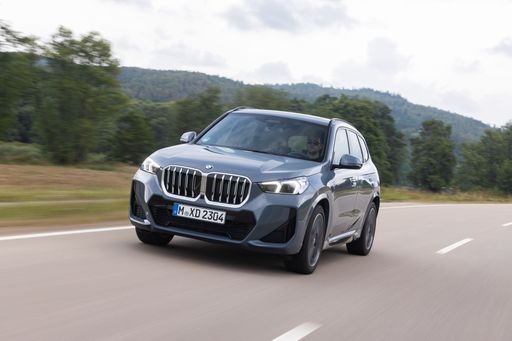 @ BMW Group Press
@ BMW Group Press
BMW X1
BMW X1
The BMW X1 brings a premium feel to compact crossover life, wrapping practical space and agile handling into a tidy, upscale package. It’s ideal for buyers who want BMW driving dynamics without the bulk, offering everyday comfort and a few clever tricks to keep the commute interesting.
details @ BMW Group Press
@ BMW Group Press
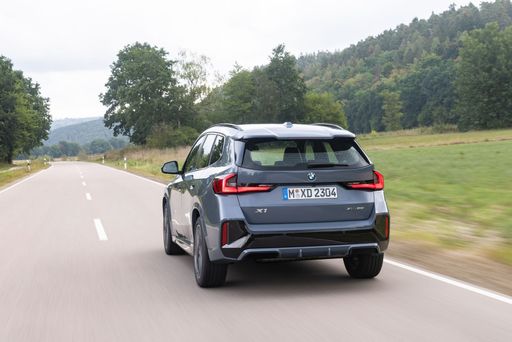 @ BMW Group Press
@ BMW Group Press
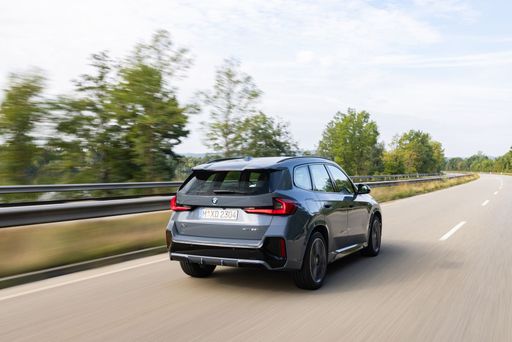 @ BMW Group Press
@ BMW Group Press
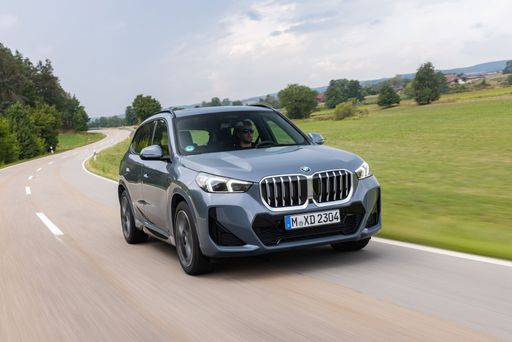 @ BMW Group Press
@ BMW Group Press
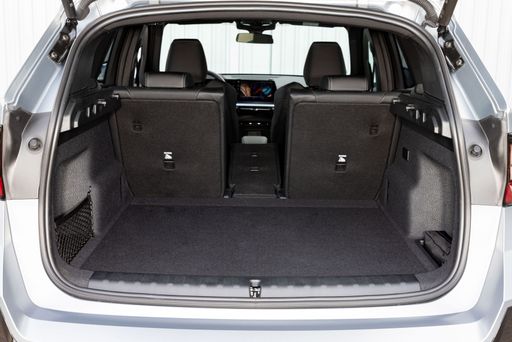 @ BMW Group Press
@ BMW Group Press
Peugeot 2008
The Peugeot 2008 is a stylish, city-friendly crossover that packs big character into a compact package, turning mundane errands into a mildly entertaining drive. Its clever interior layout, polished looks and confident ride make it a smart choice for buyers who want practical daily sense with a touch of flair.
details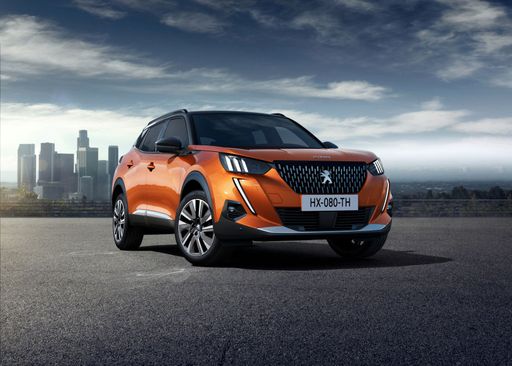 @ Peugeot / Stellantis Media
@ Peugeot / Stellantis Media
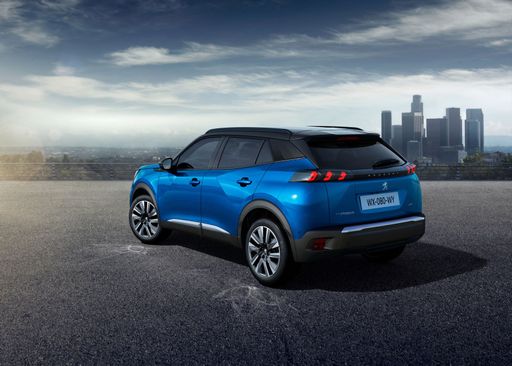 @ Peugeot / Stellantis Media
@ Peugeot / Stellantis Media
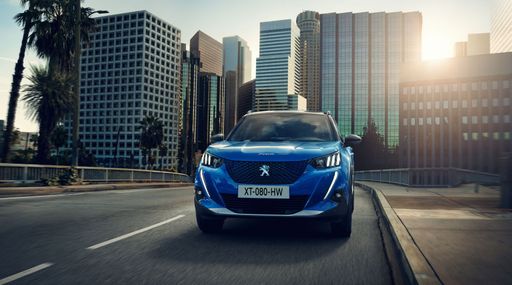 @ Peugeot / Stellantis Media
@ Peugeot / Stellantis Media
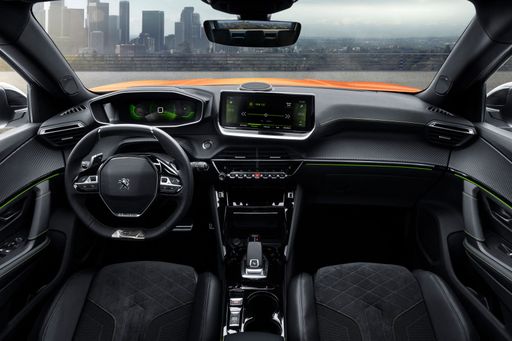 @ Peugeot / Stellantis Media
@ Peugeot / Stellantis Media
 @ BMW Group Press
@ BMW Group Press
|
 @ Peugeot / Stellantis Media
@ Peugeot / Stellantis Media
|
|
|
|
Costs and Consumption |
|
|---|---|
|
Price
38200 - 55500 £
|
Price
24500 - 40300 £
|
|
Consumption L/100km
2.5 - 7.7 L
|
Consumption L/100km
4.9 - 5.7 L
|
|
Consumption kWh/100km
-
|
Consumption kWh/100km
15.50 kWh
|
|
Electric Range
81 km
|
Electric Range
406 km
|
|
Battery Capacity
14.20 kWh
|
Battery Capacity
51 kWh
|
|
co2
57 - 175 g/km
|
co2
0 - 129 g/km
|
|
Fuel tank capacity
47 - 54 L
|
Fuel tank capacity
44 L
|
Dimensions and Body |
|
|---|---|
|
Body Type
SUV
|
Body Type
SUV
|
|
Seats
5
|
Seats
5
|
|
Doors
5
|
Doors
5
|
|
Curb weight
1575 - 1935 kg
|
Curb weight
1263 - 1623 kg
|
|
Trunk capacity
490 - 540 L
|
Trunk capacity
434 L
|
|
Length
4500 - 4505 mm
|
Length
4304 mm
|
|
Width
1845 mm
|
Width
1770 mm
|
|
Height
1622 - 1642 mm
|
Height
1523 mm
|
|
Max trunk capacity
1495 - 1600 L
|
Max trunk capacity
1467 L
|
|
Payload
490 - 500 kg
|
Payload
407 - 447 kg
|
Engine and Performance |
|
|---|---|
|
Engine Type
Diesel MHEV, Petrol MHEV, Petrol, Diesel, Plugin Hybrid
|
Engine Type
Petrol, Electric, Petrol MHEV
|
|
Transmission
Automatic
|
Transmission
Manuel, Automatic
|
|
Transmission Detail
Dual-Clutch Automatic
|
Transmission Detail
Manual Gearbox, Reduction Gearbox, Dual-Clutch Automatic
|
|
Drive Type
Front-Wheel Drive, All-Wheel Drive
|
Drive Type
Front-Wheel Drive
|
|
Power HP
136 - 326 HP
|
Power HP
101 - 156 HP
|
|
Acceleration 0-100km/h
5.4 - 9.2 s
|
Acceleration 0-100km/h
8.3 - 10.9 s
|
|
Max Speed
190 - 250 km/h
|
Max Speed
150 - 206 km/h
|
|
Torque
230 - 477 Nm
|
Torque
205 - 270 Nm
|
|
Number of Cylinders
3 - 4
|
Number of Cylinders
3
|
|
Power kW
100 - 240 kW
|
Power kW
74 - 115 kW
|
|
Engine capacity
1499 - 1998 cm3
|
Engine capacity
1199 cm3
|
General |
|
|---|---|
|
Model Year
2024 - 2025
|
Model Year
2023 - 2025
|
|
CO2 Efficiency Class
D, E, F, B
|
CO2 Efficiency Class
D, A, C
|
|
Brand
BMW
|
Brand
Peugeot
|
Is the BMW X1 offered with different drivetrains?
The BMW X1 is offered with Front-Wheel Drive or All-Wheel Drive.
The prices and data displayed are estimates based on German list prices and may vary by country. This information is not legally binding.
